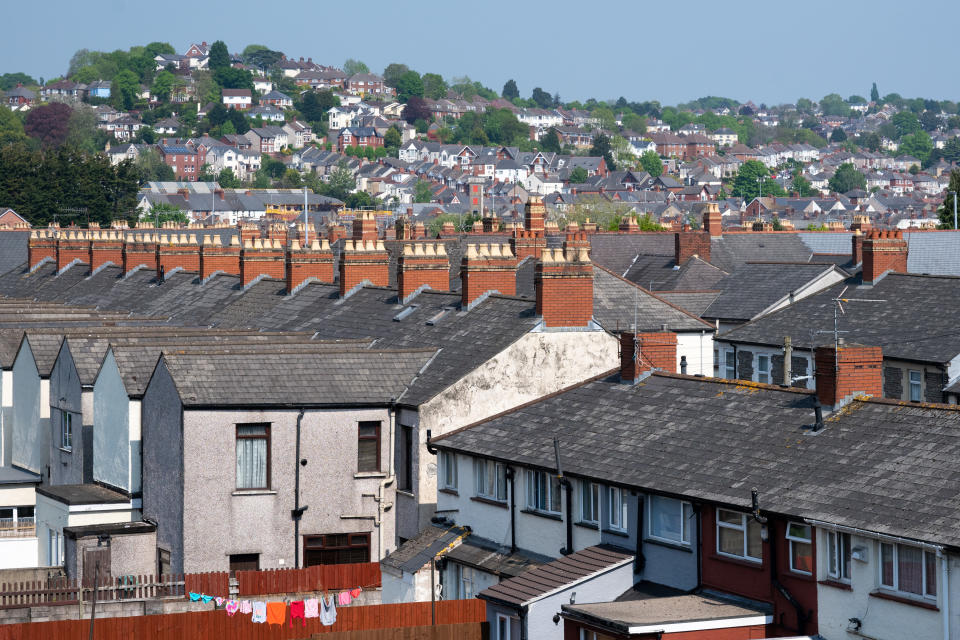Coronavirus: UK house price growth slowed even before lockdown

UK house price growth started to slow even before the coronavirus lockdown began.
Transaction data from the Land Registry and Office for National Statistics (ONS) suggests mounting uncertainty and infection fears over viewings were already curbing the ‘Boris bounce’ in prices before the lockdown began in late March.
Annual house price growth slowed from 1.5% in the year to January to 1.1% in the year to February. England saw the weakest growth in the UK, with annual inflation slowing from 1.3% to 0.8% and an average sale price of £246,000 in February.
The east of England saw prices drop 1% year-on-year, the first time any region had experienced a decline since last November before the Conservatives’ election victory.
READ MORE: UK house prices ‘could take a year to recover’
The pre-lockdown slowdown indicates an easing of official restrictions on property market activity last week is unlikely to unleash a significant and sustained flurry of activity. The wider economic climate has also deteriorated significantly since February, with millions of livelihoods affected by the unprecedented lockdown and social distancing to contain the virus.
The Bank of England has said prices may drop 16% as the economic shock ripples through the property market.
The data comes as Rightmove warned many first-time buyers looking tot buy may need much higher deposits because of the coronavirus crisis. The UK’s largest lenders have pulled their highest loan-to-value mortgage offers, as they focus on helping existing customers and limit risk with in-person valuations restricted until last week.
READ MORE: Property viewings and valuations allowed as market reopens
Analysis by the property site suggests the average first-time buyer deposit at 10% of the property’s value would be just over £24,000 ($29,394). But if a minimum 15% deposit was needed, which is a level many lenders currently require, the upfront cost would jump to more than £36,000.
Rightmove also said interest in buying had been “steadily increasing” since the government lifted curbs on the housing market last week. It said the number of visitors looking in detail at specific properties was now up 2% on last year, compared to a 35% drop when the restrictions had come in.
It also carried out a survey of first-time buyers before the curbs were lifted, with 94% saying they were determined to buy when they were allowed to do so.

 Yahoo Finance
Yahoo Finance 